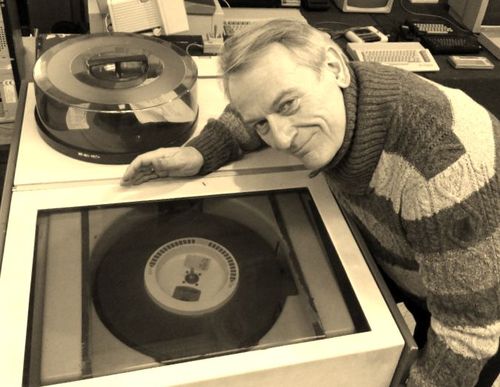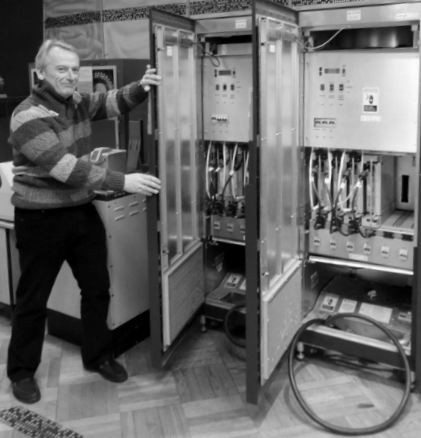
I was talking at a conference and a
regulator was on the panel.
The panel chair
asked him: “should we think about innovation first or regulation?” and he
responded by saying: “It is not a question of regulation or innovation. I would rather ask the question: why do we
need innovation at all? Who is it
for? Who does it benefit?”
I was a little bit surprised at this response, but then the regulators
don’t really get what’s happening, do they? Not only are regulators trying to sweep up
issues in the market as they see them occurring, but they are always following behind
the markets that are following the customers.
The customer is in the lead.
In this case, it is the consumer who is leading the corporations, who
are requesting the banks for innovations that the regulators are then trying to
regulate.
No wonder the regulator was dismissive of innovation.
Let’s put it a different way, and get ready for some more nostalgia (think old typewriters and cash machines), things were different in my day.
I’ve been in the tech industry for over three decades, and when
I started we were using punched card machines.
Magnetic disc storage was just appearing and soon became
mainstream.

Picture from the archive: an ICL Disc Station, the predecessor to the hard disc
I remember selling my first major system to an insurance
company.
The system comprised a 16MB processor with 250MB disk
storage, and cost around $300,000.
Times have changed.
Today, these storage and processing capacities are
laughable.
For example, by way of comparison, I’m about to buy a new
laptop with an 8GB processor and 1TB storage for under $700.
That’s what a difference twenty years has made, with
processing and storage capabilities becoming unlimited whilst price has become
meaningless.
Think of it another way.
The most powerful computer in the world by the end of the 1980s
was the Cray computer.

Picture from the Archive: 1997 CRAY T3E Supercomputer
The Cray supercomputer was the most expensive in the world,
costing millions of dollars, but that’s because they were the most impressive
in the world, they could even play chess and they could win, beating
chessmasters, until other computers played against them and won.
Today, that Cray supercomputer is less powerful than the mobile
phone you use.
Put it another way.
In 1997, I worked with a firm called Teradata (still going
today) who provided
the most powerful analytic machines in the world.
The machines cost millions and could trawl through masses of
information to find the relationships between different fragments of data and
make sense of them.
The machines were known to be expensive, and people bought
them to be better at proactive marketing to their customers. The kind of Big Data engines of their day.
The biggest customer in the world for mining data at that
time was Wal*Mart.
Wal*Mart had a 27 terabyte database, and that was considered
MASSIVE.
Wal*Mart had invested $20 million in the system and it
worked.
Today, I can buy a terabyte of storage for under $100 almost
anywhere.
Point made.
Processing power is cheap, storage is cheap and computing technology
capabilities are disposable and simple for everyone to access and use.
What was once a price barrier is now a usage encourager, and encouraging
usage has certainly happened?
We now generate exabytes of data daily and think nothing of it.
And the social mobile is our point of access to do all of this.
So here’s the point, returning to my regulator-innovator
dialogue.
The consumer is now the innovator.
The consumer now has the power in their pocket or purse that
used to reside in the largest corporations to process data.
The consumer is now socialising and communicating with the
tools that used to enable businesses to communicate and transact.
As a result, the consumer is creating their own way of
trading, interacting and organising their finances, using cheap and powerful
tools at their disposal from many providers, including financial and
non-financial firms for their financial needs.
Almost four years ago, I called this Banking-as-a-Service.
On-demand banking that the user defines their way.
Four years later, some banks are catching up with this
message because it often takes years for the banking industry to move.
But the industry cannot move in years.
It should be moving in months or weeks or even days.
I will write more about this tomorrow, with some specific examples
of where the industry has moved too slow and, on occasion, too fast.
In the meantime, the regulator will always lose as they
follow the industry that follows their corporate clients who follow their
consumers who innovate … and the consumers will always win as they lead businesses
and governments, who lead banks who lead regulators to regulate.
Archive photographs from the Muzeum Techiki, Warzaw, Poland
Chris M Skinner
Chris Skinner is best known as an independent commentator on the financial markets through his blog, TheFinanser.com, as author of the bestselling book Digital Bank, and Chair of the European networking forum the Financial Services Club. He has been voted one of the most influential people in banking by The Financial Brand (as well as one of the best blogs), a FinTech Titan (Next Bank), one of the Fintech Leaders you need to follow (City AM, Deluxe and Jax Finance), as well as one of the Top 40 most influential people in financial technology by the Wall Street Journal's Financial News. To learn more click here...

